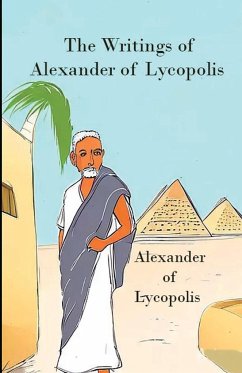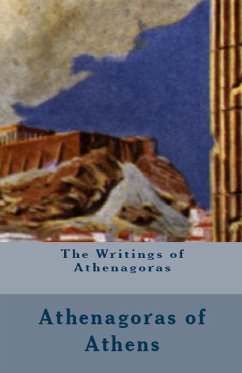Whether Alexander was called ¿¿¿¿¿¿¿¿¿¿¿ from his birthplace, or from his episcopal See, this is certain and acknowledged, that he of good right claims for himself a place among ecclesiastical writers, for he has given us an elaborate treatise against the Manichæan tenets; Allatius wrote out and brought to light two passages from it, while as yet it was lying hid in the libraries. From the inscription of the work, we learn that Alexander was first a pagan; and afterward, having given up the religion of the Greeks, became an adherent of the Manichæan doctrines, which he says that he learnt from those who were on terms of familiar intercourse with the heresiarch, ¿¿¿ ¿¿¿ ¿¿¿¿¿¿¿¿ ¿¿¿ ¿¿¿¿¿¿; so that he would seem to be not far wrong in his conjecture who would place our author at no very distant date from the times of Manes himself. From the errors of this sect he was divinely reclaimed, and, taking refuge in the Church, he exposed the scandals attaching to the heresiarch, and solidly refuted his unwholesome dogmas. From having been an adherent of the sect himself, he has given us more information concerning their tenets than it was in the power of others to give, and on that account his treatise seems to be held in much estimation.
Hinweis: Dieser Artikel kann nur an eine deutsche Lieferadresse ausgeliefert werden.
Hinweis: Dieser Artikel kann nur an eine deutsche Lieferadresse ausgeliefert werden.








